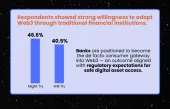Agentic AI forces rethink of digital checkout
Open standards and shared tokens are key to making AI-driven commerce work.
Speaking on the sidelines of the Singapore Fintech Festival 2025, Paul Harapin, APAC CRO at Stripe, said the company is rapidly expanding its infrastructure to support a new wave of agentic AI applications that are beginning to transform how online commerce works.
“We work to build economic infrastructure to power the most ambitious companies in the world,” Harapin said, noting that AI represents “a new revolution” following decades of shifts across e-commerce, SaaS, and digital marketplaces.
A key development is Stripe’s instant checkout with OpenAI, which allows users on platforms like Etsy — and soon Shopify — to complete product search and checkout entirely within a conversational interface. “That enables customers to be able to use OpenAI… to handle the whole search and check out flow,” Harapin said. The open standard ensures merchants “still maintain the understanding of their customer, all of the logistics and the payment flow,” even when the transaction originates inside a chat platform.
To strengthen security and trust, Stripe has introduced shared payment tokens, which “ensure the confidentiality of the payment flow, but still enable the merchant… to understand who their customer is.”
Harapin noted that agentic AI fundamentally reshapes traditional checkout. “Checkout was built in traditional commerce for humans… and so agentic AI disrupts that because the human isn't involved in the flow.” Stripe’s agentic commerce protocol, built with OpenAI, allows automated agent-to-agent interaction and “simplifies the whole process.”



















 Advertise
Advertise







Commentary
Fighting fraud in the digital banking age
Asian banking’s next frontier: Beyond growth, embracing precision
Rethinking cybersecurity: How APAC banks can safeguard against AI-powered threats